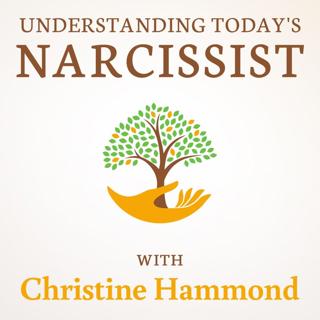
What is gaslighting?
A man obsessed with stealing valuable jewels murders one woman and attempts to drive the other one (his wife) crazy. His single-mindedness, driven by selfish motives, caused him to deceive and manipulate in order to obtain what he wanted regardless of the cost to others. Bit by bit, he torments his wife until she believes… (more…) Advertising Inquiries: https://redcircle.com/brands Privacy & Opt-Out: https://redcircle.com/privacy
2 Apr 202014min

Am I Becoming a Narcissist?
Alice woke up crying. The reality of a previous night of fighting, slamming doors, and breaking plates came into full view. The house was a mess, her husband of eight years was gone, and she felt as broken as the plates. She could hardly recognize herself anymore. In the middle of the screaming last night,… (more…) Advertising Inquiries: https://redcircle.com/brands Privacy & Opt-Out: https://redcircle.com/privacy
18 Mars 202011min

Should I Stay or Should I Go?
David wondered if it was time for his relationship with Stephanie to end. In the beginning, things were great, and he thought that he found the love of his life. She was charming, helpful, generous, and gentle. But as time passed, new problems emerged. The ease of their relationship was now tumultuous. The excitement and… (more…) Advertising Inquiries: https://redcircle.com/brands Privacy & Opt-Out: https://redcircle.com/privacy
5 Mars 202013min

Can Narcissism Be Fixed?
Stacey was frustrated by her adult 35-year-old son with two failed marriages (everything was the ex’s fault), five career changes (his bosses hated him and wanted to get rid of him), a couple of DUIs, and now living back at home. No matter what happened, other people were to blame for his relationship and career failures. Stacey was sympathetic but exhausted from the constant drama in her son’s life. Read more... Advertising Inquiries: https://redcircle.com/brands Privacy & Opt-Out: https://redcircle.com/privacy
20 Feb 202013min

5 Ways to Survive Narcissistic In-Laws
It was a second marriage for Clark and Claudia so they were both prepared for a difficult first couple of years as they blended their families together. But what they did not expect was the added difficulty of Clark’s parents. He knew that they were narcissistic and even prepared Claudia for their limited encounters. However, the holidays brought out an intensity that Clark did not expect. It also was Clark’s birthday and his mother invited them by saying, “Only I know how to properly celebrate our special day.” The passive-aggressive comment was just the beginning of the strange behavior. Read more... Advertising Inquiries: https://redcircle.com/brands Privacy & Opt-Out: https://redcircle.com/privacy
6 Feb 202011min

13 Types of Relationship Affairs
What is an affair? It is a sexual encounter, romantic comrade, or obsessive attachment between two people without a significant other’s knowledge. It can come in many forms but all of them have the underlying issue of a betrayal of trust, unfaithfulness to a commitment, and infidelity of the relationship. Sometimes it destroys the initial relationship and other times the relationship can survive. Read more... Advertising Inquiries: https://redcircle.com/brands Privacy & Opt-Out: https://redcircle.com/privacy
5 Dec 201913min

My Spouse is a Narcissist, Now What?
After reading several articles on narcissism, Kaitlyn realized that her husband was one. She knew that something was off for years but couldn’t put her finger on it. She fell in love immediately with him and within months, they were married. She thought she met the perfect person, he was charming, attentive, and sensitive. But shortly after the marriage, things changed. Read more... Advertising Inquiries: https://redcircle.com/brands Privacy & Opt-Out: https://redcircle.com/privacy
21 Nov 201914min

Narcissistic Abuse: Cyberbullying and Cyberstalking
Shirley thought that the abuse from her narcissistic husband would be over after the divorce was finalized. But it wasn’t. Instead, he found a new way to harass, embarrass, and torment her. He began to cyberbully and cyberstalk. Read more... Advertising Inquiries: https://redcircle.com/brands Privacy & Opt-Out: https://redcircle.com/privacy
21 Nov 201913min





















